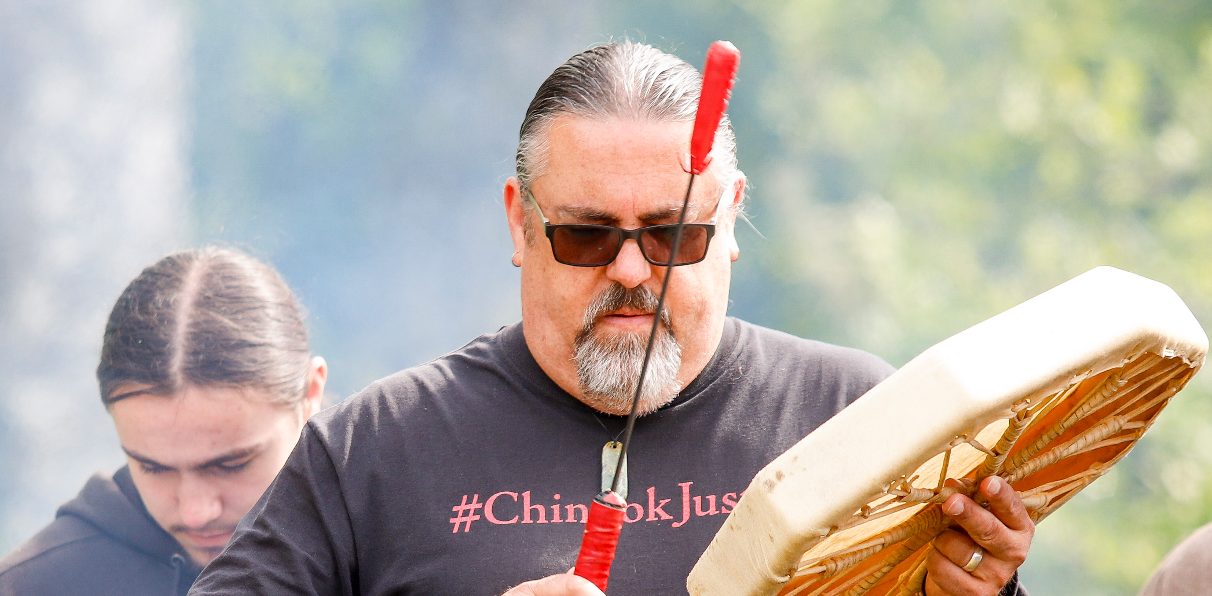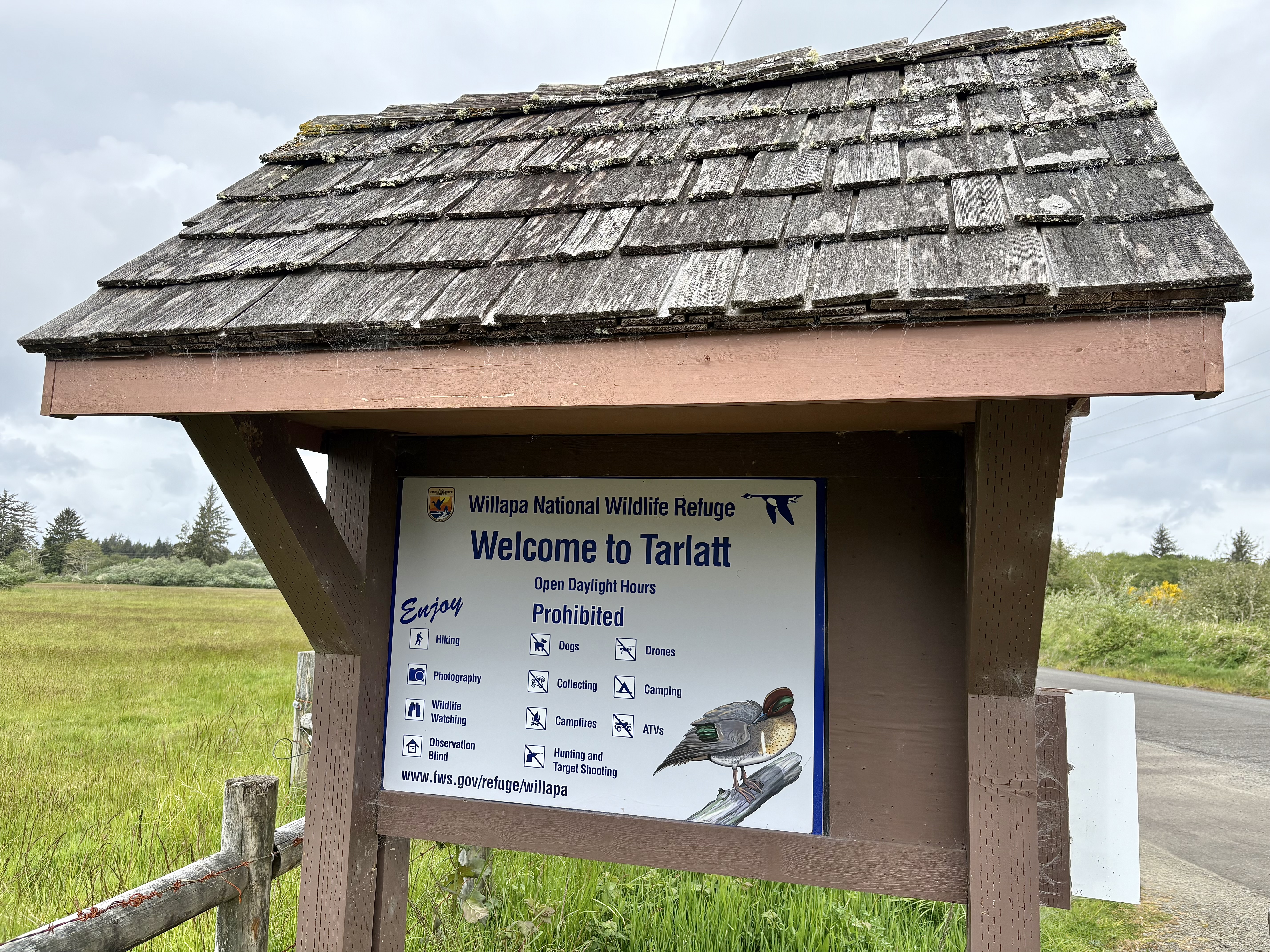Editor’s Notebook: Loggers aren’t villains: Conservation and forestry coexist
Published 11:10 am Tuesday, October 31, 2023

- An old-time logger strikes a pose in Lower Columbia woods in a photo from about 1900.
Logging, fishing and farming are the pilings on which most Pacific Northwest settlers built their lives. These occupations remain acutely important to many rural residents — cultural bedrock with enduring economic importance.
Trending
Disrespect and neglect of these foundations go some way to explaining the much-discussed urban-rural divide. It’s easy to understand how resentment grows when rigging-pants heroes of the woods are forgotten, while get-rich-quick software executives are lauded like leaders of some elite new species.
“Strong Winds & Widow Makers,” a 2023 award-winning book by University of Oregon Assistant History Prof. Steven Beda, is an illuminating trek into the forests alongside highclimbers and other logging specialists. More importantly, it’s an examination of how politics, corporate boardrooms, and changing social attitudes and technology left many timber workers on the short end of the stick — and where things stand now.
For all we who haven’t worked in the woods — and perhaps even for some who have — “Strong Winds” is a fact-filled guidebook, with something interesting on every page.
Trending
Local hero
Heroism of the “just get on with the dangerous job” variety is instantly apparent in the book’s early section. There can be few better examples than Naselle’s Oiva Wirkkala, some of whose working exploits were captured in 1976 by oral historian David L. Myers and in a video (www.youtube.com/watch?v=gi9Sb3BopWQ). Wirkkala’s narrow escape after setting a dynamite charge in the top of a spar tree deserves to be part of essential Northwest folklore.
“It’s a rough game, there’s no question about it,” he said. When you stepped on that logging train to the job site every morning, “you were not sure if you were going to come back feet first” in a coffin.
Experienced and courageous men like Wirkkala earned informal leadership roles. “Because workers knew it was their teamwork and knowledge of the forests that allowed the entire productive system to function, they showed little respect for foremen, engineers, and lumbermen. Quite simply, they believed the bosses needed them, but they didn’t need the bosses.”
The human element
Forestry, “Strong Winds” make clear, is a rough game in every way. Old-time loggers also recognized that their lives were literally expendable. The book details the ways in which the wood-products industry of the past half-century has increasingly seen workers and their communities treated like disposable cogs in an international money machine. Years ago, a Washington state lumberman observed his profits would be higher “if not for the ever present human element to contend with.”
While big-time timber companies worked to wring every dollar from the woods where local people worked, lived and played, front-line loggers became increasingly pushed to the margins and looked down upon, taking the blame for over-exploitation decisions that were far above their pay grade. At the same time, outside interest in the health of Northwest forests percolated into popular culture, and too often painted those most knowledgeable about the woods as uncaring bumpkins.
“Books and films like ‘Sometimes a Great Notion’ marked the end of a regional cultural consensus that had once imagined timber workers as the vanguard of conservation, and the beginning of a new consensus that suggested timber workers were among the greatest threats to the forest. … By the time activists filed the first petitions seeking an endangered listing of the spotted owl in 1987, both workers and environmentalists had already become thoroughly convinced that each posed an existential threat to the other.”
Technological innovations in timber harvesting and sawmills have vastly improved safety, while also slashing payrolls. Added to the tens of thousands of job losses that resulted after implementation of the Northwest Forest Plan and its acknowledgment that 1980s logging levels were unsustainable, these on-the-ground changes mean that many fewer make dependable living wages from forest work. The “human element” paid a steep price for change.
Hard times
My family’s reckoning with industrial inequities came decades ago with Grandpa Elmer Winters’ layoff in 1934, just shy of 30-years employment. The Voice of Action, a pro-labor newspaper, reported:
“BELLINGHAM — Bloedel Donovan dumped over 300 of its mill workers into the ranks of the unemployed here last week — all of the night crew and part of the day crew. The National Lumber Workers Union went into immediate action for these unorganized unemployed mill workers, calling a mass meeting and organizing the ex-workers into a militant fighting group … against the merciless system of the lumber barons….”
Being treated as disposable was the start of hard times for my family and many others. My teen-age dad was shipped off to live with his grandparents in Grants Pass, while grandpa toiled in a depression-era job with the federal Works Progress Administration. It probably was there, wallowing in creosote, where he was exposed to the chemicals that eventually caused his fatal cancer.
However, our family wouldn’t have existed in the first place without the logging business.
The same “for better or worse” reliance on timber harvests still reverberates through many Washington and Oregon towns — Warrenton, Raymond, Naselle and Knappa are all examples — inhabited by loggers who genuinely love forests.
Timber Unity
It is good to read in the first few pages of “Strong Winds” about loggers working for the same company my grandfather did who discover and commence to save a 25-acre grove of remarkable old trees on Vancouver Island’s White River. “In the end, Bloedel Donovan acquiesced and relinquished its harvest rights to the grove. … Wherever we find people working in nature, we are almost certain to find people who take seriously their obligation to nature.”
This sympathetic book closes with in the present day and efforts by Timber Unity and other rural people to reclaim control of their own destiny from state capitals and federal agencies. “It’s certainly true that most of Timber Unity’s activists reliably vote Republican, but the politics of the group’s core members are more complicated and nuanced.” They don’t want to cut it all down.
Wilderness areas can and should coexist with forests dedicated to industrial forestry, Beda concludes. I think my grandfather would agree.









